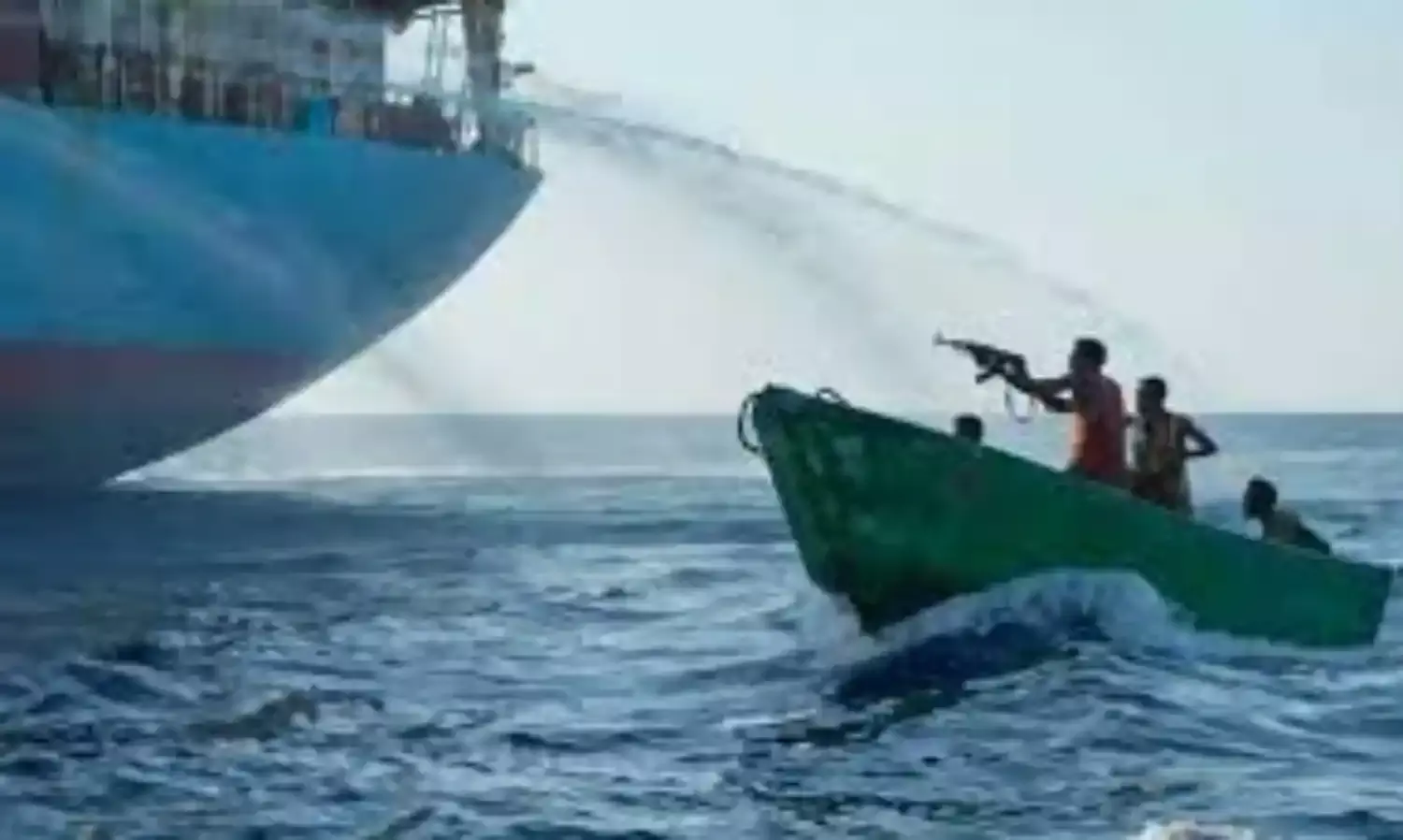Ijaw Diaspora Council urges FG to tackle piracy in N/Delta
IDC stated that the conference also urged “all stakeholders to shun the lure of dollars from buyers of stolen crude oil to Nigerian youths, especially in the Niger Delta region,” as well as drastically minimize “corrupt foreign government officials and financial institutions receiving and recycling illicit funds; ransom payments for crews and sailors in dollars; and exotic lifestyles from the proceeds,” all of which “serve to wet the appetite for these criminal activities and further attract the youths.”;

The Ijaw Diaspora Council (IDC) has urged the federal and state governments to join forces in curbing piracy in the Niger Delta region.
The group traced the menace to legal and jurisdictional lapses, underfunded law enforcement, inadequate security, permissive political environments, and the culmination of years of inattention, desperation, and lawlessness.
A statement issued on Tuesday by Prof. Mondy Gold, President of the IDC, said the group convened an International Conference on the Law of the Sea and Maritime, where the call was made.
According to the statement, tackling piracy will ensure that governance processes and the welfare of the people in the resource-rich region can be improved.
The IDC stated that the conference was held on June 10, 2023, and had in attendance Keynote and guest speakers, including Dr. Paul Adalikwu, Secretary General of the Maritime Organization of West and Central Africa, and Dr. Bashir Jamoh, Director-General and CEO of the Nigerian Maritime Administration and Safety Agency (NIMASA).
Also among the speakers was Chief Emmanuel Tam Ezekiel-Hart, Vice President, Asia and Pacific, of the IDC.
According to the statement, Amb. Regina Yaboh, IDC Vice President, the Americas, and Dr. Antonia Garner, IDC Vice President, Europe, moderated the conference attended by both members and non-members of IDC.
IDC stated that the conference also urged “all stakeholders to shun the lure of dollars from buyers of stolen crude oil to Nigerian youths, especially in the Niger Delta region,” as well as drastically minimize “corrupt foreign government officials and financial institutions receiving and recycling illicit funds; ransom payments for crews and sailors in dollars; and exotic lifestyles from the proceeds,” all of which “serve to wet the appetite for these criminal activities and further attract the youths.”
In its communiqué, the conference called on governments in the Niger Delta to support Operation Obangame, “the largest multinational maritime exercise in West and Central Africa, which includes numerous sea and ashore training events throughout the Gulf of Guinea and the Southern Atlantic oceans.
Obangame was sponsored by the United States Africa Command in order to combat the threat of oil theft in the region.
The conference noted that the Suppression of Piracy and Other Maritime Offences (SPOMO) Act, 2019, of Nigeria empowered the Deep Blue security architecture of the federal government of Nigeria to prosecute offenders.
It was noted that the law has reduced the occurrence of piracy in the Gulf of Guinea to a manageable level.
The conference agreed to collaborate and improve synergy among stakeholders, sustain the gains made by the Maritime Organization of West and Central Africa (MOWCA), and work with member States and the International Maritime Organization (IMO) for the establishment of an Integrated Coast Guard Function Network.
The network will supply regional mechanisms for combating piracy and armed robbery against ships and for enhancing maritime security in general for the area from Mauritania to Angola.
“The Communique urges states in the Niger Delta with invaluable resources and jurisdictional rights and responsibility to Nigeria as a State to generate an Exclusive Economic Zone (EEZ) of 200 nautical miles towards the high seas for Nigeria.
“Its continental shelf brings to Nigeria 350 nautical miles measured from its baseline, as defined by Article 57 of the 1982 United Nations Law of the Sea (UNLOS).”
This is because a coastal State such as Nigeria and coastal communities such as Bonny, Warri, or Brass, or even Hobart in Australia, enjoy the benefit of the exploitation of their marine resources up to their EEZ as measured from the farthest point of their island or coast.
The communiqué urges Niger Delta states to apply caution, like in the joint development zones of Nigeria and Sao Tome and Principe, and further apply restraint in the maritime delimitation process because the rights conferred on a coastal state to explore and exploit its natural resources stem from the principle of ‘Permanent Sovereignty over Natural Resources (PSNR).
PSNR is a legal, governmental, and management authority over natural resources, particularly as an aspect of the exercise of the right to self-determination.
The conference urged restraint in coast-sharing states where no delimitation agreement has been reached because disputes are bound to arise over the sovereign rights over the natural resources within those boundaries, especially in areas endowed with natural resources such as oil and gas, often found in deposits that extend across a coastal State’s maritime boundaries, allowing for their exploitation from either side of the line.
The communiqué urged stakeholders to use the Joint Development Agreement, which has been successfully utilized in its various forms by coastal states that understand the benefits of early and certain revenue generation from the exploitation of natural resources, compared to a violent unilateral assertion of sovereign rights or the resolution of conflict through the various means afforded in the United Nations Convention on Law of the Sea (UNCLOS),” the communiqué read in part.
The forum also reiterated the need for collaboration between the Director General of NIMASA and IDC to address the problems of the Niger Delta.

